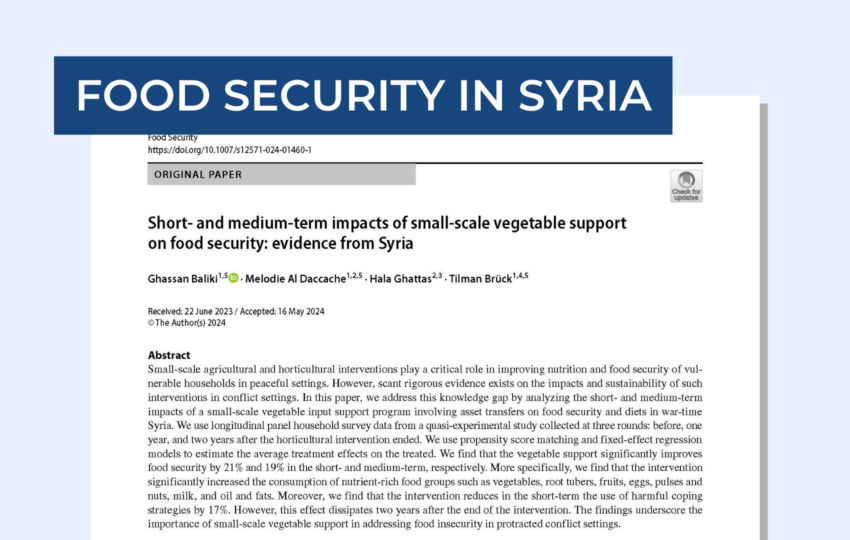ISDC is pleased to announce the publication of a new research article titled “Short- and Medium-Term Impacts of Small-Scale Vegetable Support on Food Security: Evidence from Syria.” Written by Ghassan Baliki, Melodie Al Daccache, Hala Ghattas, and Tilman Brück, this article provides critical insights into the effectiveness of small-scale agricultural interventions in conflict settings.
Key Findings:
- Significant Improvement in Food Security: The study found that the vegetable support program improved food security by 21% in the short term and 19% in the medium term.
- Enhanced Nutrient Intake: There was a notable increase in the consumption of nutrient-rich food groups, including vegetables, root tubers, fruits, eggs, pulses and nuts, milk, and oils and fats.
- Reduction in Harmful Coping Strategies: The intervention led to a 17% reduction in the use of harmful coping strategies shortly after the program, though this effect did not persist two years post-intervention.
Study Context:
Conducted in war-time Syria, this research utilized longitudinal panel household survey data from our CEDIL-funded SEEDS project. The data was collected as part of a quasi-experimental study across three rounds: before, one year after, and two years after the intervention. The findings of this study underscore the importance of small-scale vegetable support in enhancing food security and dietary diversity in protracted conflict settings.
The full article is now available open access in Food Security.



